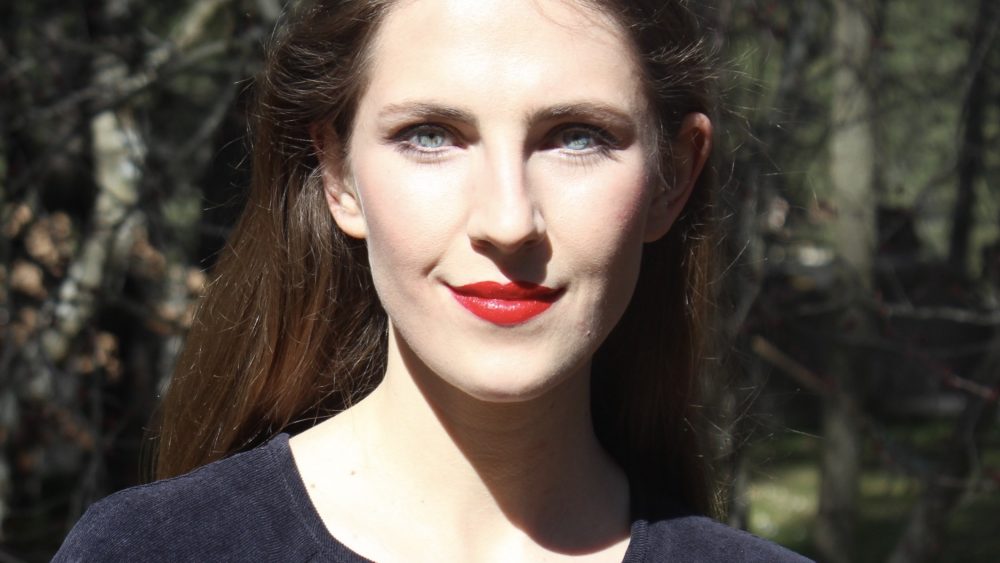The world has changed because our needs have changed. New jobs have appeared on the labor market and new educational programmes have been introduced at universities. Many of those new educational programmes are new and unknown even to employers.
Graduated recently in 2020 and already reached the United Nations.
So, how do you sell yourself if you have studied an “exotic” educational programme that most people have not even heard of? Alejandra de Barcena Myrsep who has a Master’s degree in Applied Cultural Analysis (MACA) from Lund University managed to sell her “exotic” and relatively unknown educational programme to such heavy-weight employers as the European Defense Agency (EDA) and the United Nations Office for Disaster Risk Reduction (UNDRR), despite having graduated only in 2020. How did she manage it?
Alejandra de Barcena Myrsep is currently a trainee responsible for research coordination at EDA. Prior to this role, she worked as a research associate at Africa Center for Strategic Progress as well as a programme management intern at UNDRR. Alejandra is also the first MACA graduate that has been awarded the Hydén Award – an annual award to mark the best thesis on socio-economic and political issues in low- and middle-income countries, as presented by a Bachelor or Master’s level student at Lund University.
Her education gave her transferable skills that proved very useful.
According to Alejandra, the Master’s programme in Applied Cultural Analysis prepares you well for the “real world” because it includes practical components such as assignment to companies to develop project management skills in the second semester and work placement in the third semester. The latter gives you the opportunity to gather data for your master’s thesis at the same time as you gain experience and get more or less ready for future employment. Alejandra further notes that in MACA they did a lot of fieldwork, which involved recording, and later transcribing, a great amount of semi-structured interviews. Being trained in transcription, one knows how to listen and how to write, at the same time as one does it quickly. Alejandra remarks that she never expected this skill to prove so useful in her career. In her current role, one of her responsibilities includes taking notes at meetings and conferences which are sometimes not even recorded. This means that the field work carried out during her Master’s studies is paying off in unexpected ways.
Sell your skills, not your education.
Alejandra notes that it took her some time to realise what competencies MACA had given her. However, when she truly understood the advantages that her education had given her, she started marketing herself through what she calls the “holy trinity”: programme management, project management and stakeholder engagement. Prerequisites for all of these three skills are interdisciplinary and cooperation skills, which she further developed throughout her education in Applied Cultural Analysis, not only through tasks such as work placement but also through intensive group work. Nowadays, these skills are her cornerstones. For instance, at the EDA she works with the military on the one hand and the government on the other hand, each with their own agendas. Alejandra helps different parties unite, work together and reach a consensus so that everybody is on the same page.

Alejandra would like to share 5 valuable insights with you:
1. Choose one experience and follow the domino effect when marketing your educational background to a potential employer. For example, I would tell the employers about my assignment to two clients in the second semester, the stakeholder engagement skills I acquired there and how I applied them to my work placement.
2. If you are interested in doing an internship or traineeship at an international organisation, make sure to apply early. International organisations offer internships only to fresh graduates and their application process lasts for a few months, meaning that you have at most one year to be able to work there after graduation.
3. Think of three main words to describe your educational background. Have them as a calling card that you can pull out whenever you need to and adjust it to the role you are applying for. This helps you understand what you really want as well as to present yourself clearly. A very good one for MACA graduates is stakeholder engagement.
4. Put yourself out there. That’s when life happens for you.
5. After graduation, it is very important to have that one person that gives you a chance. I think people might be struggling because they haven’t found that person yet. Have patience.
To sum up, it comes down to your ability to truly understand and re-evaluate what your education has prepared you for and what skillset it has helped you develop so that you can explain its value to your potential employer. As Alejandra was told after one of her interviews, sometimes difference is good. Applied Cultural Analysis is different, and maybe not as known as many other educational programmes, but what you acquire throughout the programme got Alejandra to the EDA and UN. Who knows where it can get you!
Text: Katja Woxell

